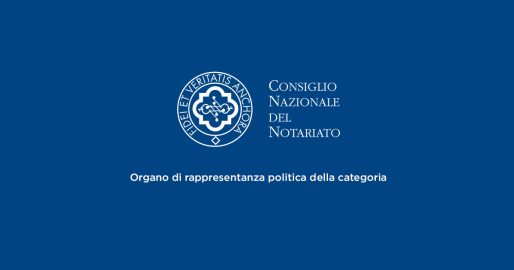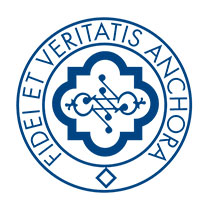These stories, from times past and present, emerge from the provisions of the last wills and testaments of famous men and women as well as of ordinary people. They make interesting and in some cases even comical reading. Those who choose to give a noble end to their existence through a charitable bequest turn their will into a story of love for their fellow man and send a message of hope to new generations.
Strange to say, but the reading of wills can become intriguing and sometimes even diverting. Whatever the stylistic choice of the testator, there is no will that does not open or close with this imperative: “My will be done.”
Whatever that will may be: from the impossible to the more curious, from the desire of the testator to rid himself of a niggle to a gesture of solidarity to help those most in need through charitable donations – which is now a real tradition in our country that, despite the economic crisis, is growing.
This was revealed by the latest snapshot of the phenomenon of legacies taken by the Comitato Testamento Solidale [Charitable Wills Committee, Ndr] which includes 16 prestigious non-profit organisations: ActionAid, AIL, AISM, Fondazione Don Gnocchi, Lega del Filo d’Oro, Save the Children, Aiuto alla Chiesa che Soffre Onlus, AMREF, CESVI, INTERSOS, Fondazione Operation Smile Italia Onlus, Fondazione Telethon, Fondazione Umberto Veronesi, Telefono Azzurro, UNICEF, Università Campus Bio-Medico di Roma – with the patronage of the National Council of Notaries.
BIZARRE AND SPITEFUL STIPULATIONS: SOMEWHERE BETWEEN MADNESS AND ENTERTAINING RESENTMENT
He hated women in life and wanted to continue detesting them even in death. But he had not reckoned with his daughter. This is the story of the misogynistic lawyer T.M. Zink of Iowa who died in 1930 and expressed in his will the desire to employ his $35,000 to build a library whose shelves were not supposed to host women’s works. Offended by having received only a paltry $5 as her inheritance, his daughter succeeded in having a court order that the library not be built.
Then there is the case of Samuel Bratt, a British man who died in 1960 leaving £330,000 to his wife on the condition that the woman smoke five cigars a day. Behind this absurd request lay a desire for revenge: during his lifetime, the lady had forbidden her husband to smoke his cigars and so upon his death the man had seen fit to return a contrary favour to his beloved.
A testamentary disposition of William Shakespeare sounds like a little vendetta whereby he left Anne, his wife of 33 years, only his “second best bed” and some other pieces of furniture. The bulk of his estate went to the eldest daughter but something was also done for the poor of his home town, Stratford-upon-Avon.
THERE ARE THOSE WHO THINK ONLY OF THEMSELVES EVEN AFTER DEATH AND THOSE WHO WANT THE IMPOSSIBLE …
There are those who, even after death, can think only of themselves. As in the case of the German-born composer Georg Friedrich Handel who died in London in 1759 leaving 600 pounds (£90,000 in today’s money) to be used to build a statue in his honour in Westminster Abbey..
George Bernard Shaw placed no limits on his imagination in his will: he ordered that part of his estate go to finance the invention and promotion of a new alphabet, better than the one in which he had written his plays. Impossible… and so the money ended up in the coffers of the British Museum and other public institutions of the kingdom.
LAST DESIRES NOT CARRIED OUT: THUS THE AENEID CAME DOWN TO US
The provisions of a will are not always carried out because, in the words of Thomas Mann, “the death of a man is not so much his business as that of those who survive”. As in the case of Charles Dickens who, despite having written expressly in his testament that he did not want a public funeral, was still granted a State funeral which stopped the whole nation. Before him, even Virgil’s testamentary stipulations were betrayed (thankfully!) by his friends. It is thanks to them that the Aeneid has come down to us, because if it had been for the Roman poet the fate of the work, which he considered incomplete, was to finish in the flames.
On the death of Franz Kafka, Max Bord, acting as executor, should have destroyed his many unfinished works. We all know how that turned out: Bord did not follow the last wishes of the writer from Prague who wrote in German: he published all the texts. The result? Kafka became one of the most widely read and best-selling novelists on the planet.
The theme of dispositions not respected has also inspired the world of cinema. Totò reminds us of that in the film “47 Dead Who Speak” which made history because of the famous phrase “… and I have to pay!”. Antonio de Curtis plays the role of the stingy Baron Antonio Peletti who has no intention of spending the treasure inherited from his father to finance the construction of a public school in his native town (which does not have one). The ending is well known: the institute is eventually built but Baron Peletti’s fellow-villagers have to come up with an evil plan to enforce the (charitable) last desires of the deceased.
AND WHO WOULD HAVE THOUGHT IT …
A stir was surely aroused by the will of Sir Francis Drake, the pirate who preyed upon Spanish galleons on behalf of the British crown when in 1596 he left his considerable fortune (40 pounds, equivalent to 150,000 pounds today) to the poor and to the parish of Plymouth, his home town.
But sometimes even just one sentence leads to a shocking revelation, as in the case of Maria Montessori who in her will recognised a secret child she had abandoned after its birth and who had come back into her life shortly before her death.
They were not children, but almost. For Dean Smith, coach for 36 years of the University of North Carolina basketball team, his athletes were his life and that is why he wanted them – all, without exception – to share in his will: so he left a small legacy for each of them. A symbolic figure, a cheque for $200 and a note with this message: “Have a good lunch, with best regards from Coach Dean Smith”. The coach’s final lesson was received by Charlie Scott, the first African-American recruited by the University of North Carolina, strongly backed by Smith in order to send a signal against racial segregation, and famous players like Michael Jordan, Bob McAdoo, James Worthy, Sam Perkins and Larry Brown.
Throughout history many people have wanted to thank friends and co-workers in their will. As in the case of Nelson Mandela who rewarded with legacies of about three thousand euros all his assistants, including his trusted personal assistant, Zelda.
He was not the only one. The most generous was the philosopher, jurist and English writer Francis Bacon who actually left most of his home and his land to his servants. A domestic servant, Robert Halpeny, received 800,000 pounds in today’s money (1 million euros) in addition to guaranteed provisions of straw and firewood; to another, Stephen Paise, went 700,000 pounds (850,000 euros).
In addition to family and friends, there are those who think in their will of their pets. The latest case was of an American woman from New York who left one million dollars to her dog. The money will allow the Maltese terrier to eat only the choicest of meat and to enjoy many other amenities.
Finally one must consider the case of a person who, left alone, gives up a great legacy in favour of her community. This is the story of the extraordinary humanity of Marija Zlatic, 86, who needs very little to live on. “I do not want more than bread, water and firewood,” said the old lady who donated to her community the Euro 600,000 inherited from her husband. Ms. Zlatic lives in the mountainous region of Boljevac in Serbia, after living for many years in Australia with her husband. When her mother became ill she returned to Serbia and heard nothing more of her husband. When the man died, having no other heirs, he left everything to Mrs. Zlatic who, without a second thought, gave the money to charity.
“WAS IT TRUE GLORY? POSTERITY WILL JUDGE”. FROM THE SETTING UP OF THE NOBEL PRIZE TO THE CASE OF THE US “GIVING PLEDGE”
Making a will is the easiest and most effective way to be present even when you are forced to say goodbye to this world. One who was firmly determined to leave to posterity a good image of himself was Alfred Bernhard Nobel, Swedish chemist (1833-1896) who made a fortune with the invention of dynamite and as an arms dealer.
In the last years of his life, however, he was tormented by remorse and did not want to be remembered as a purveyor of death. Like Scrooge in Dickens’ A Christmas Carol, he decided to change his fate. And he did it starting with his will: he divided his assets between his family and a foundation set up with the aim of distributing annually five awards to those who had made the greatest contribution to humanity in the fields of chemistry, medicine, literature, physics and peace. That is the story of how the famous Nobel Prize was born.
If you ask Bill Gates what is the most beautiful enterprise, the founder of Microsoft will answer: “It is charity.” His are not mere words: with his wife Melinda French and Warren Buffett, a well-known American entrepreneur, he has created “The giving pledge” (the promise to donate) which invites the richest people (those who have already joined include Mark Zuckerberg, Michael Bloomberg, the founder of CNN Ted Turner, the banker David Rockefeller and many more) to commit more than half of their fortunes to charity, either during their lifetime or through their wills. This is the most gigantic philanthropic project ever made in history, with a total capital that far exceeds the finances of a medium-sized state.






